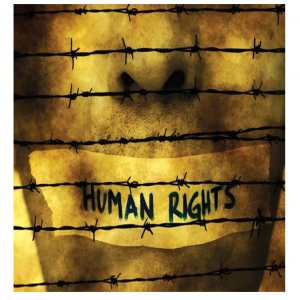
 Fr. Gaurav Nair
Fr. Gaurav Nair

In light of the global situation, we may safely (ironically) conclude that we stand at a crossroads. We are witnesses to a profound unravelling—a systematic dismantling of everything humanity had come to achieve regarding peace and justice in the past century. The current attack on human rights threatens not just marginalised but the very essence of human dignity. The world is no longer experiencing isolated incidents of rights violations but witnessing a collective pillorying of principles that once seemed immutable.
India, celebrated as the world's largest democracy, has become a laughable showcase of this degradation. The country's promise of secularism and inclusion is replaced by strife. Muslims and religious minorities, tribal communities, and women find themselves increasingly pushed to the periphery, their fundamental rights reduced to mere constructs for politicians to attack each other with.
The ethnic tensions that erupted in Manipur in May 2023 and still continue have revealed a horrifying landscape of human rights violations. Men and women are subjected to unprecedented brutality. Women being paraded naked, sexually assaulted, and humiliated has become so commonplace that it has become a vile metaphor for the complete breakdown of institutional protection.
The economic landscape adds yet another dimension to human rights challenges. Beyond economic indicators, poverty and unemployment are human rights issues. When millions are denied essential economic opportunities, they are stripped of their dignity, agency, and hope. Unemployment isn't just about a lack of income but exclusion from societal progress. How can India be "viksit" if Indians are far behind? Is India no longer defined by its people?
Young Indians face an increasingly bleak horizon. With unemployment rates hovering around record highs, especially among educated youth, the promise of a demographic dividend has transformed into a potential demographic disaster. It is generally observed that when economic desperation meets political polarisation, the result is a Molotov cocktail of social unrest and radicalisation.
The global context is equally troubling. From the ongoing conflicts in Gaza and Ukraine to the rise of authoritarian tendencies in multiple countries, human rights are being compromised.
What makes this current phase particularly dangerous is the sophisticated machinery of rights erosion. It's no longer about crude, overt oppression. Instead, it's a nuanced process of legal manipulation, media narrative control, and calculated marginalisation. Laws are crafted not to protect but to exclude. Institutions are recalibrated to serve majoritarian political interests.
The most insidious aspect of this process is how it normalises the extraordinary. What would have been considered unacceptable a decade ago is now treated as routine. Hate speech has become political discourse. Discrimination has become policy and violence, a tool of governance.
Yet, hope persists in grassroots movements, courageous journalists, human rights activists, and ordinary citizens who continue to resist. Resistance is not just a protest; it's a reminder of our collective humanity.
As we stand at this critical juncture, the question is not just about rights. Will we allow ourselves to be defined by our differences, or will we reclaim the dignity, equality, and mutual respect that is our due?